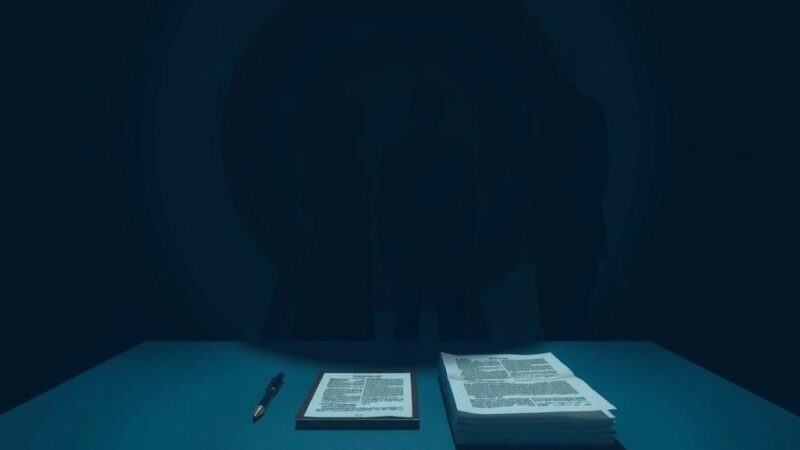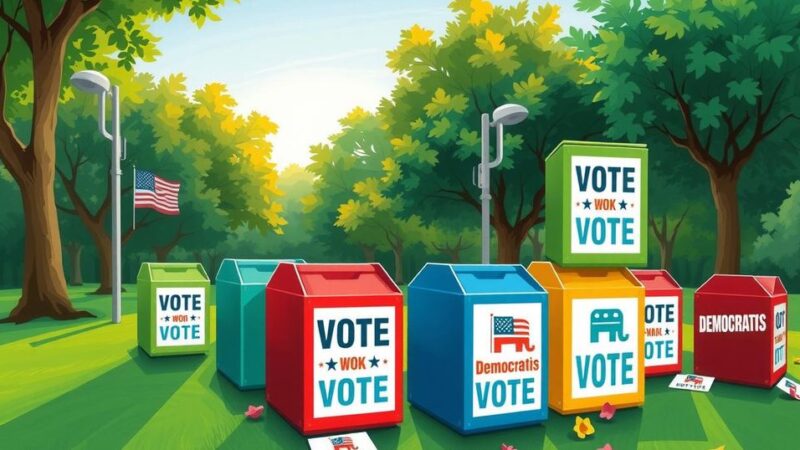The article explores the disconnect between stated preferences and actual behaviors in education and employment, drawing a parallel to the popularity of unique entertainment forms such as Drunk Shakespeare. It examines how economic insecurity influences voting decisions, suggesting a possible preference for familiar candidates in upcoming elections, while emphasizing the need for an informed electorate to ensure responsible decision-making.
Recent developments in the world of labor have drawn attention to the unique scenario at Brass Jar Productions, which has instituted the first union contract related to workplace drinking. The company is known for its unconventional production of Drunk Shakespeare, where one professional actor consumes five shots of whiskey before attempting to perform in a Shakespearean play, accompanied by four sober actors who strive to maintain the integrity of the show amidst the chaos that ensues. The new contract offers vital health benefits and sick leave to actors, which the union has declared essential. The company welcomes this endorsement from the Actors’ Equity Association, eager to maintain its brand of entertaining yet reckless performances. This phenomenon may, surprisingly, indicate a shift in societal preferences for entertainment. While many individuals profess a disinterest in watching intoxicated performances, the popularity of Drunk Shakespeare, along with related productions like Drunk History and seasonal performances of Drunk Dracula, suggests otherwise. An intriguing parallel can be drawn between this spectacle and broader societal preferences in education and employment, particularly illustrated during the recent Human Potential Summit focused on apprenticeship opportunities in Colorado. Julie Stone, the Director of Family Economic Mobility at Gary Community Ventures, underscored the significant discrepancy between stated preferences and actual choices in the education sector. Parents express satisfaction with public education and support for teachers’ unions; however, the reality reflects a stark contrast, as millions have opted out of traditional schooling in favor of charter schools and other alternatives. Data show that K-12 public school enrollment has been declining, particularly in major urban districts. The same trend can be observed in higher education. Despite overwhelming support for funding community colleges and state universities, enrollment rates in these institutions continue to dwindle, reflecting a growing sentiment of economic insecurity among parents. This anxiety has resulted in students gravitating toward urban, dynamic educational settings where job prospects are perceived as more promising. While parents and students indicate a desire for stability and better outcomes, their actions reveal a shift towards pre-professional and vocational programs, mirroring a collective fear regarding future economic opportunities. The current political landscape further complicates this issue, as upcoming elections bear witness to a deadlock in stated voting preferences among citizens. Although education has been cited as a crucial predictor of voting behavior, the creeping fear of economic instability may lead voters to favor policies and candidates perceived as safer options. In this context, President Trump’s familiarity may position him as a less risky candidate compared to Vice President Harris, despite the potential dangers associated with his previous administration. Should voters ultimately choose to prioritize a perceived safe option in the election, it would suggest a shift towards more conservative voting overall, particularly in battleground states. However, key to this outcome is the electorate’s capacity to critically evaluate risks associated with candidates, showcasing a potentially concerning gap in voter education which may result in poor decision-making. The crux of this theory hinges on a well-informed electorate that can adequately assess risks involved in their choices. Without sound education and information, voters could make impulsive decisions, paralleling the lighthearted yet irresponsible nature of drunken performance art. Participation in democracy should not mirror a raucous theatrical production; it demands clarity, resolve, and sober judgment to steer society toward beneficial outcomes.
The article discusses the intersection of educational preference, economic insecurity, and voting behavior in the context of upcoming elections, drawing parallels with modern entertainment trends such as Drunk Shakespeare. It highlights the discrepancy between expressed preferences and actual behaviors in educational enrollment, particularly as families navigate economic challenges. This framework is used to explore potential shifts in voter behavior amidst lingering uncertainties regarding candidates and policies, emphasizing the importance of making informed choices in a democratic society.
In conclusion, the evolving relationship between education, economic insecurity, and voting behavior illustrates a nuanced landscape where stated preferences may diverge significantly from actual decisions. As voters approach the upcoming elections, the desire for stability in uncertain times may lead them to favor familiar candidates, even at the risk of endorsing potentially reckless outcomes. It is imperative that the electorate is equipped with the necessary knowledge and understanding to navigate this pivotal moment in democratic engagement.
Original Source: www.forbes.com






